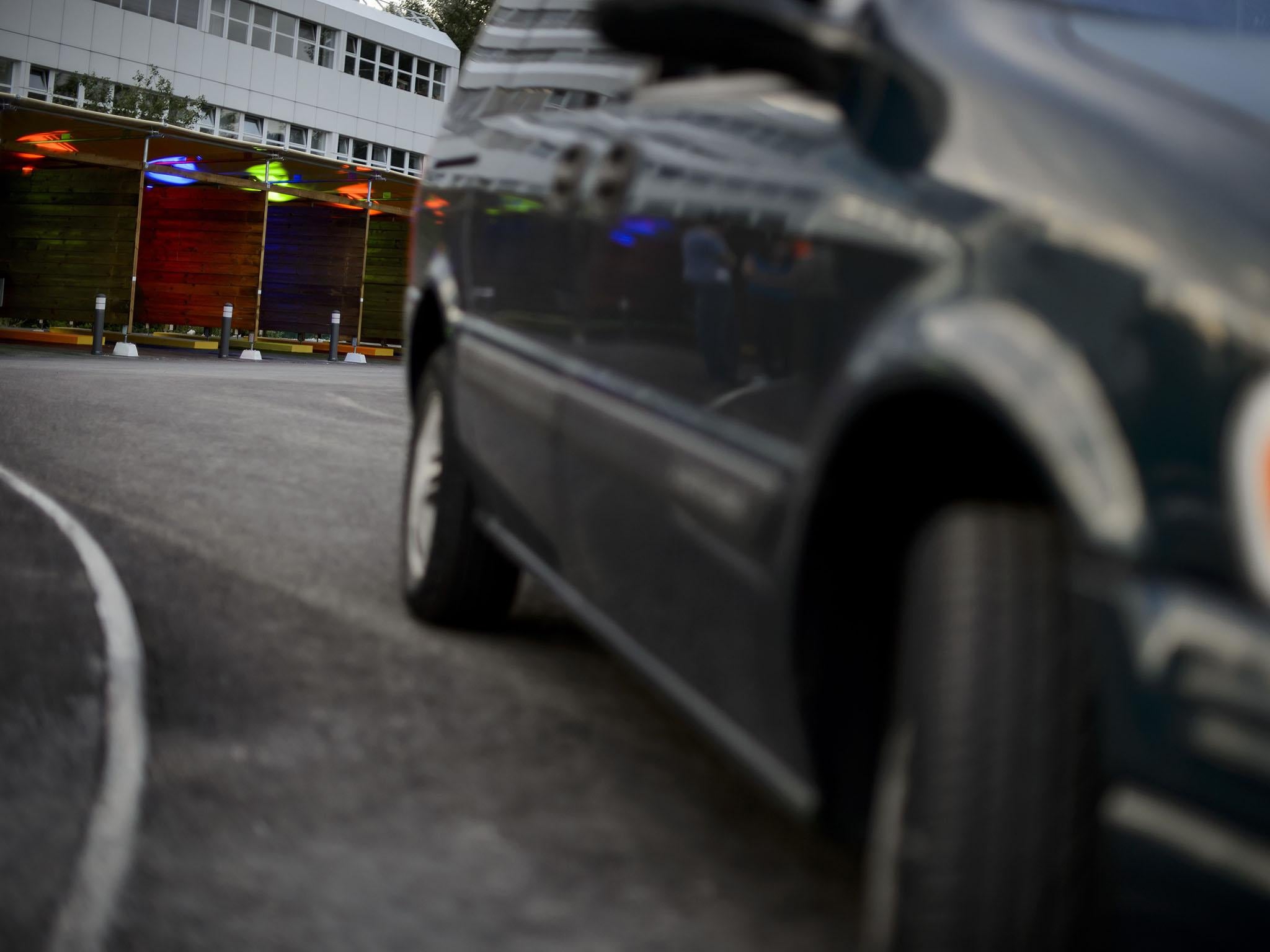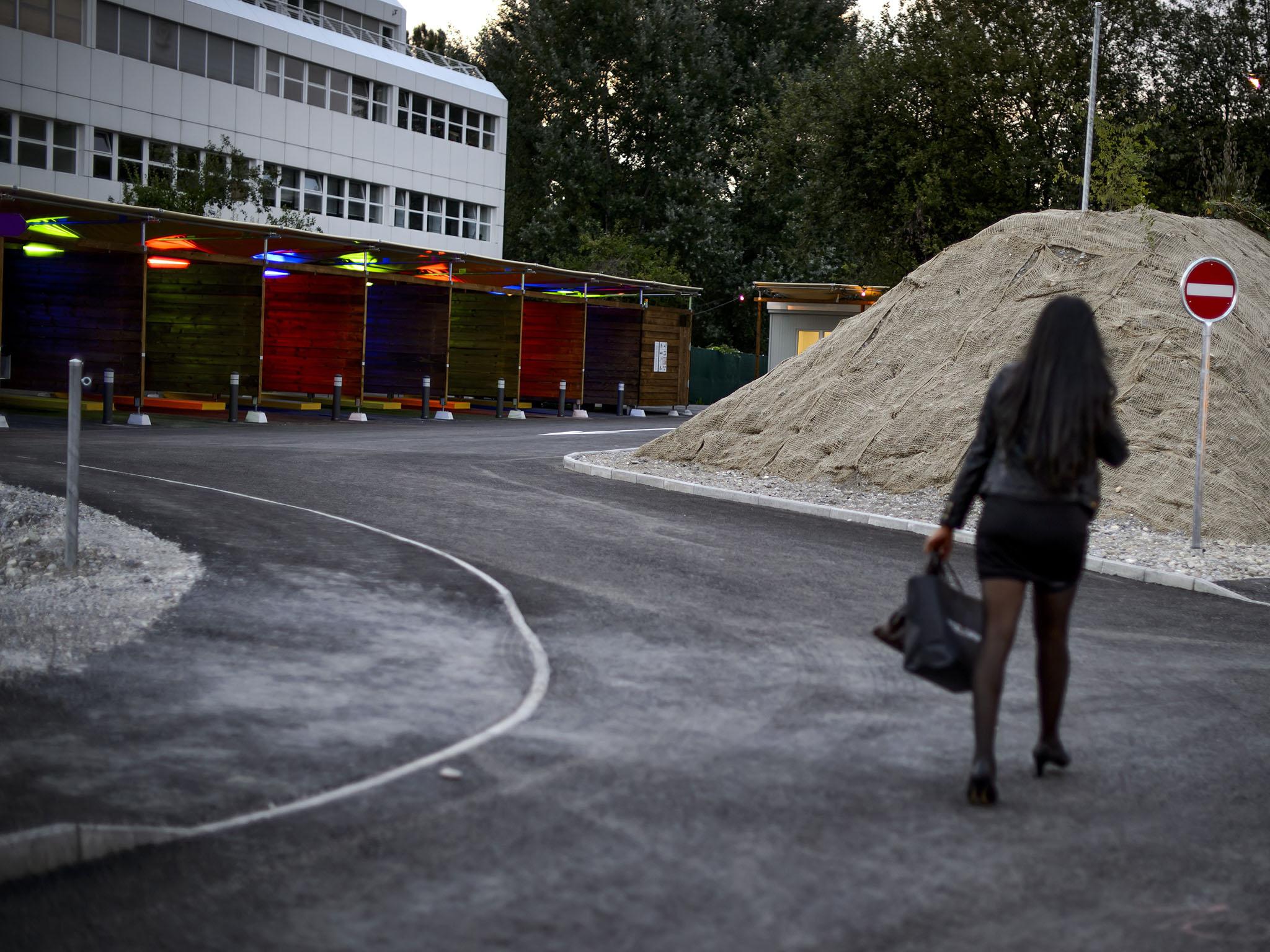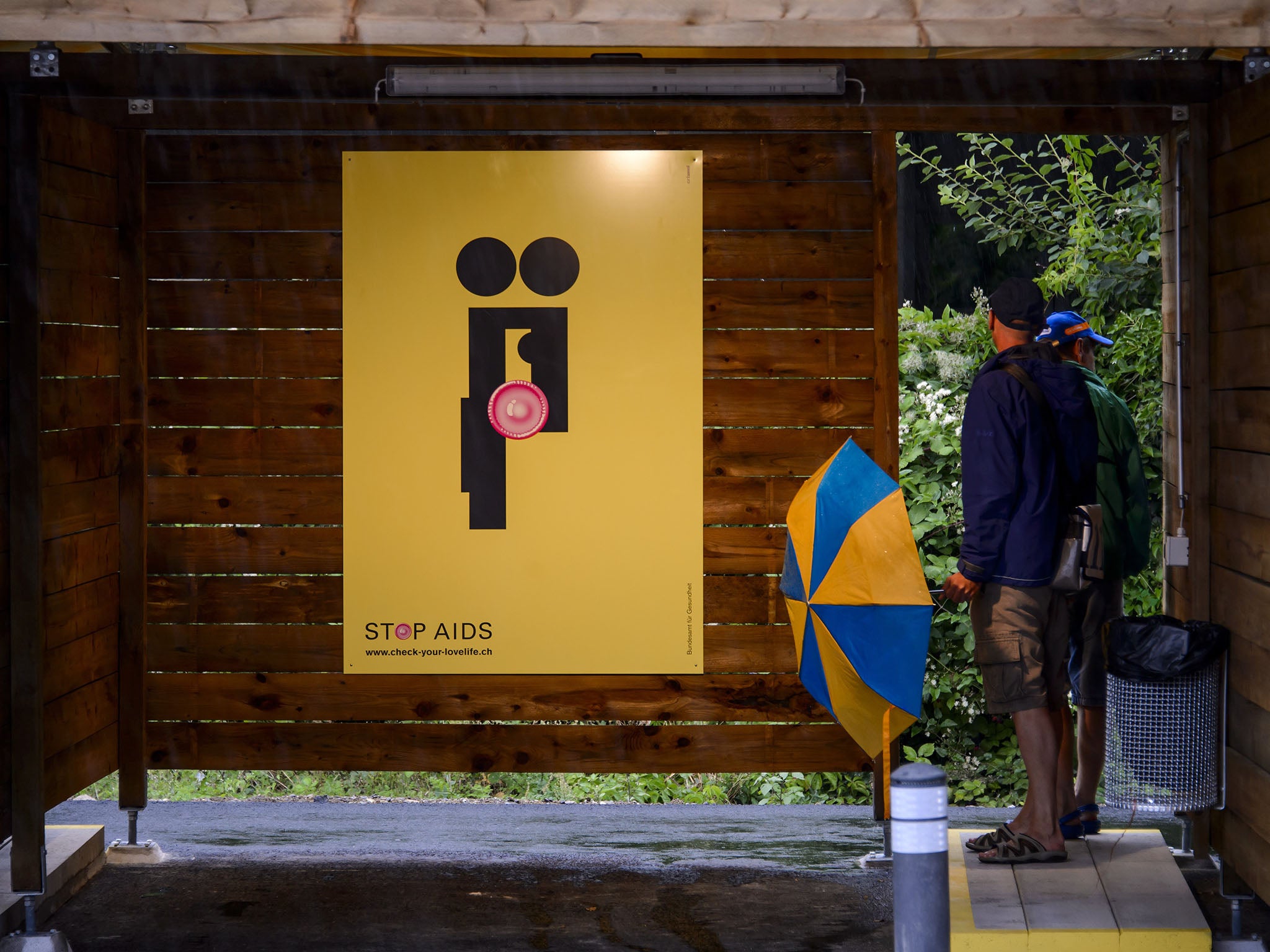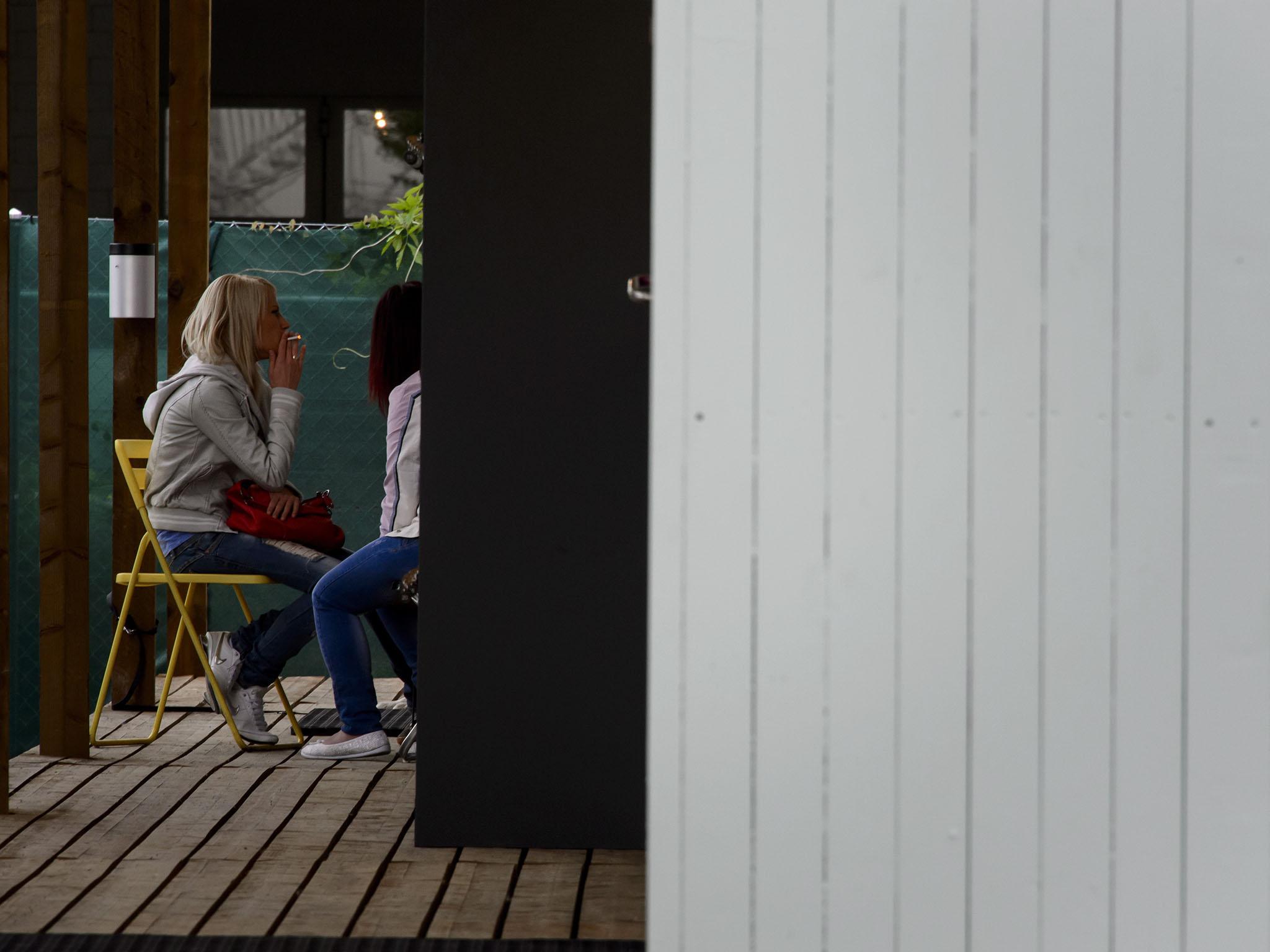Why Zurich has turned its red-light district into a drive-through
Zurich’s social workers say the new drive-through red-light district safeguards vulnerable sex workers, cuts pimps out of the business and possibly decreases human trafficking. Gogo Lidz reports on the pull-up, pull-in and pull-out service

Your support helps us to tell the story
From reproductive rights to climate change to Big Tech, The Independent is on the ground when the story is developing. Whether it's investigating the financials of Elon Musk's pro-Trump PAC or producing our latest documentary, 'The A Word', which shines a light on the American women fighting for reproductive rights, we know how important it is to parse out the facts from the messaging.
At such a critical moment in US history, we need reporters on the ground. Your donation allows us to keep sending journalists to speak to both sides of the story.
The Independent is trusted by Americans across the entire political spectrum. And unlike many other quality news outlets, we choose not to lock Americans out of our reporting and analysis with paywalls. We believe quality journalism should be available to everyone, paid for by those who can afford it.
Your support makes all the difference.It’s midnight in Zurich, a global centre for banking and finance, but I’m in a taxi hunting for prostitutes. The first thing I see that tells me I’m close is the neon – red, green, blue – that illuminates each stall of the long parking garage on my left. My cabbie drives past what seem like sleazebag Christmas crèches toward a small wooden shed, where two hookers in their twenties stand, hands on hips, cigarettes dangling from shiny, rouged mouths. I roll down my window. “Do you speak English?” I ask the one with the honeycomb-streaked peroxide job.
She does, but when I tell her I’m a reporter, she rolls her eyes and says I can’t talk to her or any of the other women. “Securitas” she says, pointing to the opposite side of the street, where a large, hardy female in a blue vest is keeping watch. She’s a member of the city’s sip züri, social workers specially trained in conflict management. Zurich has strict privacy and consent laws: if I want to tour the city’s drive-through sex box complex, I must pay for the privilege as any customer would.
I hear a car horn behind me – my cab is holding up the line. It turns right, and I’m on a paved, looping track about the size of a football field. Lining the track are 10 covered wooden sheds (about 10 feet apart) about the size of a typical bus shelter. Some are spray-painted with prices. The cost of services varies, depending on bartering between the sex worker and the client. According to my cabbie (a self-appointed “prostitution expert”), a quick lube job runs around 50 Swiss francs (£40), a full service is £80; and £160 or so to “stick it in reverse.”
Each shed houses two to six prostitutes, all in provocative outfits. All ladies, no men or transgender people, who typically hustle Zurich’s LGBT brothels or bars instead. The working girls – mostly Roma (who are often discriminated against in Europe and referred to pejoratively as “Gypsy”) from central and Eastern Europe – smoke, chat, drink Swiss lager and wait for customers to drive by and choose them. Circling the track in a taxi and checking out the hookers in their seduction-wear makes me feel as if I’m on a sordid amusement park ride.

If you thought sex in a box was reserved for Justin Timberlake sketches performed on Saturday Night Live, you’ve obviously never been to Zurich, where the red-light district has been packaged and streamlined like an express-order fast-food chain. It’s accessible only by car — pull up, pull in, pull out.
In numerous surveys, Zurich has been named the city with the best quality of life in the world and the wealthiest on the continent. It also has a booming pleasure industry. “There’s a high demand,” says Michael Herzig, the former Zurich department official who helped develop and open the sex boxes. “Cities with lots of business and people coming in and out have the highest demand for the sex industry.”
Prostitution has been legal in Zurich since 1942, and some 1,200 prostitutes are registered with the city. “American media always wants to know why Switzerland doesn’t make prostitution illegal,” says Herzig. “But that doesn’t work. It certainly isn’t working in the United States. Prostitution will happen whether it’s legal or not. Shouldn’t we try to make it safe and provide areas for help?”
On the fanciest streets of old-town Zurich, you’ll see brothels and live video-booth erotica shows nestled among luxury cashmere and watch boutiques. The hip Langstrasse district around Zurich’s town hall is a strip club hub that used to be known for drugs and prostitution. Today, the only legal designated strutting ground for streetwalkers is a small cobblestone patch in Niederdorf, near the upmarket cheese and antique shops. Until 2013, the Sihlquai area along the river was Zurich’s most popular district for men in cars.

But the prostitution in Sihlquai became a strain for residents – the pimps turned the area into a haven for organised crime, and many men got away with violent attacks on the prostitutes. Women in the neighbourhood who weren’t prostitutes were attacked, according to Barbara Ludwig, the head of Zurich’s Office for Addiction and Drugs (prostitution is traditionally overseen by this office due to its frequent association with drug use). Residents complained about the condom wrappers littering their backyards and doorsteps. For the city, however, the most pertinent problem was the traffic – mostly from rubberneckers gawking at the prostitutes. Several years ago, Zurich’s taxpayers approved a referendum to build the £19.2m compound as an alternative site for this open-air sex market.
There haven’t been any reports of violence in Sihlquai since, and no sex workers have been reported operating there or in any of the surrounding neighbourhoods. Zurich’s social workers say the new drive-through red-light district safeguards the vulnerable sex workers, cuts the pimps out of the business and possibly decreases human trafficking.
The sex boxes are in an industrial suburb favoured by artists and refugees. Basically a workshare space for freelance prostitutes, the facility is inspired by shelters in the Netherlands (where they’re called afwerkplek, literally meaning “a place to finish the work”) and Germany (verrichtungsbox, which translates to “performance box”). In the Zurich boxes, each transaction starts in the waiting area shed loop and unfolds in the neon-lit car park garage units. A customer cruises the loop, picks a prostitute, agrees on a price, veers off the loop to the garages, selects an empty box, does the deed, pays and says auf wiedersehen.

Sex box workers pay £5 a day to rent a space, but by early next year, the facility will be rent-free. During working hours, the premises are patrolled by security. Illustrated street signs near the entrance encourage condom use and explain sex box dos and don’ts (no photos, no bikes, no foot traffic, no one under 18, no littering). There are bathrooms, showers, condoms, free laundry and a small kitchen in a free health pavilion on-site called the Flora Dora that provides complimentary contraception, sex education, HIV prevention programmes, medical services, social counselling and testing for sexually transmitted diseases. The women also have access to a free off-site ob-gyn clinic.
The “boxes” are eight drive-in units for in-the-car services and four stalls with wooden plank beds and rubber mattresses. Each stall is decorated with an HIV or sex education poster and equipped with a condom disposal bin and a panic button to protect the sex worker. The button sounds an alarm throughout the entire pavilion and a flashing light inside the box in question.
Panic buttons are pushed about once a week, says Ludwig, typically after a dispute over money. “Once the button was pushed when a woman was beaten,” says Ludwig, “another time when a woman accused a man of trying to strangle her.”
The women of the boxes live a harsh life. They are migrants from Romania, Hungary and Bulgaria who are allowed only one three-month stay per year. “These women grow up without any education or even running water,” says Ludwig. “Prostitution is the only choice, and some are forced into it. Most work to support their children and families back in their home countries.” Sex-box workers are paid less than their brothel or salon counterparts, and they are “the most at risk for violence and exploitation”, says Ludwig. “I think men seek street prostitutes for the power relationship. It’s seen as more dirty.”

Despite the legalisation of prostitution, trafficking is still a problem in Switzerland, but the sex boxes have made pimping more difficult. Suspected pimps are expelled from the premises, charged with trespassing and, if found guilty, banned for life from the area. So far, none have been spotted hanging around, but Ludwig concedes that she doesn’t know “what happens after the prostitutes leave the premises” and that human trafficking is difficult to track. One advantage of the sex-box system is that the prostitutes have more access to help. Ludwig says having social workers posted at the Flora Dora health pavilion during all open hours makes it “easier for the sex workers to seek advice”.
The sex boxes are open daily, from 7pm until 3am Sunday to Wednesday, and 7pm to 5am Thursday to Saturday. They get more business on the weekends after midnight, says Ludwig, and clients usually arrive after coming up empty at bars. Business always spikes after Swiss soccer matches and slows down during certain holidays. She reports that Christmas tends to be a very quiet time in the sex boxes.
© Newsweek
Join our commenting forum
Join thought-provoking conversations, follow other Independent readers and see their replies
Comments